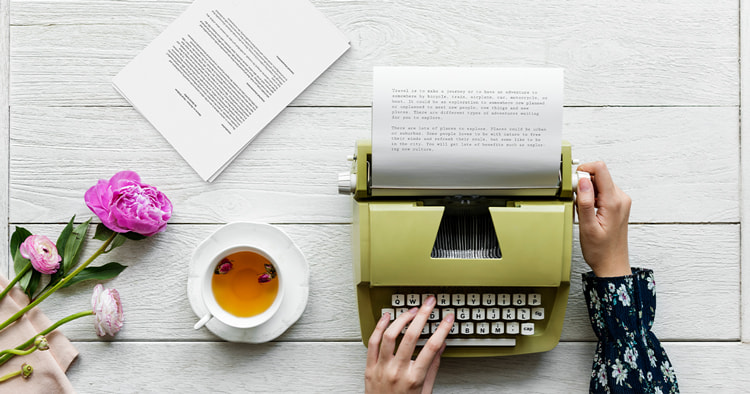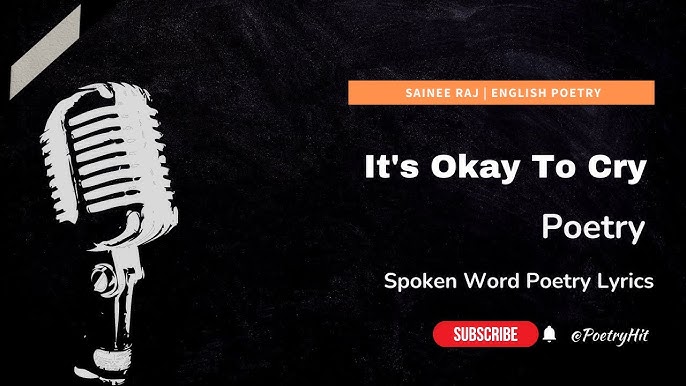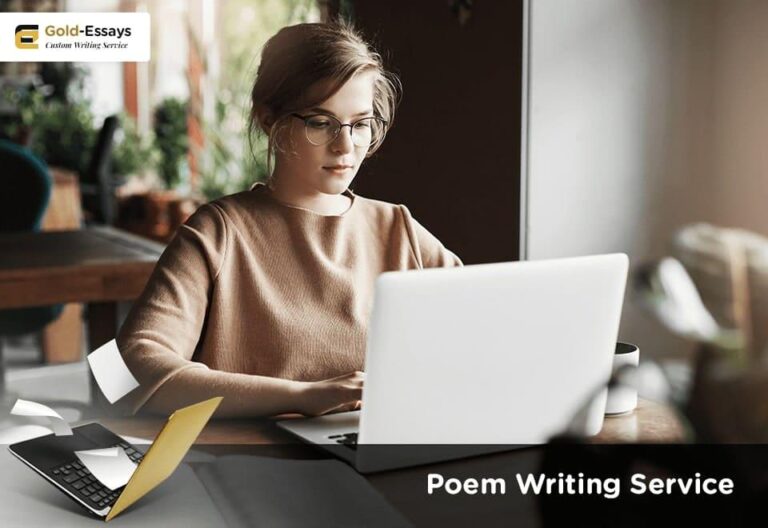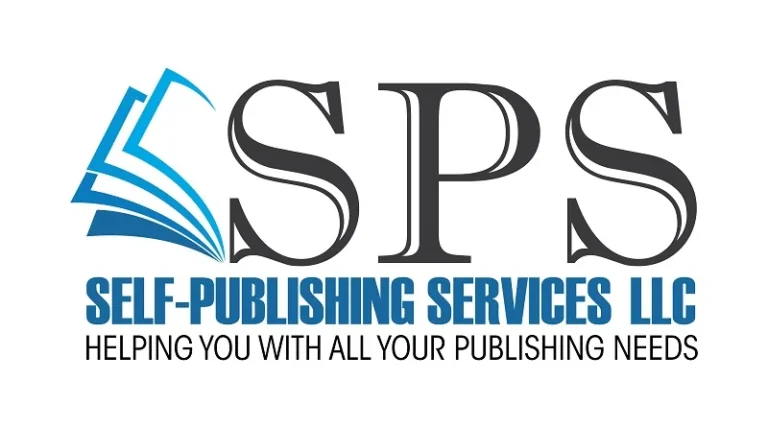
Poetry is a powerful medium for expression, weaving emotions, ideas, and experiences into words that resonate deeply with readers. For poets, competitions and grants offer not only financial support but also recognition, publication opportunities, and a chance to connect with a broader literary community. In 2025, the landscape of poetry competitions and grants is vibrant, with numerous opportunities for writers at all stages of their careers. This article provides an in-depth exploration of poetry competitions and grants available in 2025, offering insights into their benefits, eligibility criteria, application processes, and strategies for success. Whether you’re an emerging poet or a seasoned writer, this guide will help you navigate the world of poetry funding and recognition.
Why Enter Poetry Competitions and Apply for Grants?
Poetry competitions and grants serve as vital stepping stones for writers. They provide more than just monetary rewards; they offer validation, exposure, and opportunities to refine your craft. According to a 2022 Poets & Writers industry report, over 60% of contest winners received offers for publication or agent representation within a year of their win, highlighting the career-defining potential of these opportunities. Here’s why poets should consider entering competitions and applying for grants:
- Recognition and Credibility: Winning or placing in a reputable competition signals to publishers, editors, and readers that your work is of high quality. This can open doors to further opportunities, such as book deals or invitations to literary events.
- Financial Support: Grants provide funding to focus on writing without the burden of financial stress. Many competitions also offer cash prizes, ranging from modest sums to substantial awards, which can support your creative endeavors.
- Publication Opportunities: Many competitions include publication in literary journals, anthologies, or even full-length books, giving your work a platform to reach a wider audience.
- Networking and Community: Competitions and grants often connect you with judges, editors, and fellow writers, fostering relationships that can lead to mentorships, collaborations, or readings.
- Skill Development: The process of preparing submissions—refining poems, adhering to guidelines, and crafting cover letters—hones your skills as a writer and professional.
With these benefits in mind, let’s explore some of the top poetry competitions and grants available in 2025, categorized by type, eligibility, and focus.
Major Poetry Competitions in 2025
Poetry competitions vary widely in scope, from international prizes open to all poets to niche contests targeting specific themes or demographics. Below is a curated list of notable competitions with deadlines in 2025, drawn from reputable sources and tailored to provide actionable information. Each entry includes key details such as prizes, entry fees, eligibility, and submission guidelines.
1. Aesthetica Creative Writing Award
- Prize: £2,500 (approximately $3,324) and publication in the Aesthetica Creative Writing Anthology
- Entry Fee: $16 for poetry
- Deadline: August 31, 2025
- Eligibility: Open to poets worldwide, with no age or experience restrictions
- Guidelines: Submit a poem of up to 40 lines. Entries must be original and unpublished. Simultaneous submissions are allowed, but previously published work is not. The competition champions innovative pieces that push creative boundaries.
- Why Enter?: The Aesthetica Creative Writing Award is highly regarded for its international reach and emphasis on originality. Winners gain exposure through publication and access to writing courses, making it an excellent opportunity for poets seeking to elevate their profiles.
2. Black Lawrence Press St. Lawrence Book Award
- Prize: $1,000, publication by Black Lawrence Press, and 10 author copies
- Entry Fee: $30
- Deadline: August 31, 2025
- Eligibility: Open to poets submitting a debut collection of poems
- Guidelines: Submit a manuscript of 45–120 pages. The competition is open to new, emerging, and established poets, with a focus on debut collections. Manuscripts are judged by the editors and a guest judge.
- Why Enter?: This award is ideal for poets ready to publish their first book. Black Lawrence Press is a respected independent publisher, and publication can be a significant milestone for a poet’s career.
3. Grid Books Off the Grid Poetry Prize
- Prize: $1,000 and publication in print and audiobook formats by Grid Books
- Entry Fee: $25
- Deadline: August 31, 2025
- Eligibility: Poets over the age of 60
- Guidelines: Submit a poetry collection of 48–80 pages. The prize is judged by John Yau, a prominent poet and critic. Simultaneous submissions are allowed, but the work must be unpublished.
- Why Enter?: This competition is unique in its focus on older poets, providing a platform for those who may have been overlooked earlier in their careers. The inclusion of an audiobook format broadens the reach of the winning collection.
4. Academy of American Poets First Book Award
- Prize: $5,000, publication by Graywolf Press, and a six-week residency at the Civitella Ranieri Center in Italy
- Entry Fee: $35
- Deadline: September 1, 2025
- Eligibility: Open to poets who have not published a book of poetry in a standard edition
- Guidelines: Submit a manuscript of 48–100 pages, typed single-spaced. The competition is judged by an acclaimed poet, and the winner’s book is distributed to thousands of Academy members.
- Why Enter?: The prestige of Graywolf Press and the substantial prize package make this one of the most coveted awards for emerging poets. The residency in Italy offers a unique opportunity to focus on writing in a creative environment.
5. Willow Springs Surrealist Poetry Prize
- Prize: $1,000 and publication in Willow Springs magazine
- Entry Fee: $15
- Deadline: October 1, 2025
- Eligibility: Open to all poets
- Guidelines: Submit up to three poems in the surrealist tradition, in a single file. The competition seeks work that embraces surrealism’s innovative and imaginative qualities.
- Why Enter?: This prize is perfect for poets experimenting with surrealist forms. Publication in Willow Springs, a respected literary magazine, adds significant credibility to your portfolio.
6. Colorado Prize for Poetry
- Prize: $2,500 and publication by the Center for Literary Publishing at Colorado State University
- Entry Fee: $28
- Deadline: January 14, 2025
- Eligibility: Open to poets of any nationality writing in English
- Guidelines: Submit an unpublished book-length poetry manuscript of 48–100 pages. Entries are read anonymously, and a distinguished poet judges the competition.
- Why Enter?: The anonymous judging process ensures fairness, and publication by a university press offers academic and literary prestige.
7. Wergle Flomp Humor Poetry Contest
- Prize: $2,000 for first place, $500 for second place, and ten honorable mentions of $100 each
- Entry Fee: Free
- Deadline: April 1, 2025
- Eligibility: Open to all poets worldwide
- Guidelines: Submit one humorous poem, published or unpublished, with no length restrictions. The contest is hosted by Winning Writers and emphasizes creativity and humor.
- Why Enter?: With no entry fee and substantial prizes, this contest is accessible and rewarding for poets who enjoy exploring humor in their work.

8. Ambroggio Prize for Poetry
- Prize: $1,000 and publication by the University of Arizona Press
- Entry Fee: Free
- Deadline: September 15, 2025
- Eligibility: Open to poets writing in Spanish with an English translation
- Guidelines: Submit a manuscript of 48–100 pages, typed single-spaced, originally written in Spanish with an English translation. Poets may translate their own work or collaborate with a translator, sharing the prize.
- Why Enter?: This prize celebrates bilingual poetry, offering a unique opportunity for Spanish-speaking poets to gain recognition in the English-speaking literary world.
9. Hybrid Grain Poetry Contest
- Prize: $1,000 for first place, $750 for second place, $500 for third place, and publication
- Entry Fee: $40 (Canada), $50 (US), $60 (international)
- Deadline: August 31, 2025
- Eligibility: Open to all poets
- Guidelines: Submit up to five pages of original, unpublished poetry. Simultaneous submissions are allowed, but the work must not have been previously published or entered in other contests.
- Why Enter?: The substantial cash prizes and publication make this a competitive yet rewarding opportunity for poets of all levels.
10. Omnidawn Poetry Open Book Contest
- Prize: $3,000, publication, and 20 author copies
- Entry Fee: $30
- Deadline: August 16, 2025
- Eligibility: Open to all poets with no citizenship restrictions
- Guidelines: Submit a poetry manuscript of 40–90 pages (8.5 x 11) or 60–110 pages (6 x 9). Multiple and simultaneous submissions are permitted, and the contest seeks a wide range of styles and aesthetics.
- Why Enter?: Omnidawn is known for its commitment to diverse and innovative poetry, making this a prestigious platform for poets seeking publication.
Notable Poetry Grants and Fellowships in 2025
Grants and fellowships provide financial support for poets to focus on their writing, often without the competitive element of contests. These opportunities can fund projects, residencies, or career development, and they are particularly valuable for poets needing time and resources to complete their work.
1. Harvard University Radcliffe Institute Fellowships
- Prize: $78,000, office space at the Radcliffe Institute, and access to Harvard University libraries
- Entry Fee: Free
- Deadline: September 11, 2025
- Eligibility: Open to poets, fiction writers, and creative nonfiction writers with no nationality restrictions
- Guidelines: Submit a project proposal, CV, and writing samples. Fellows are expected to attend two cohort gatherings during the fellowship year and engage with the New America community. The fellowship supports ambitious projects, including books or multimedia projects.
- Why Apply?: This prestigious fellowship offers substantial funding and access to Harvard’s resources, making it ideal for poets working on significant projects.
2. Fondation Jan Michalski Residencies for Writers
- Prize: Round-trip travel and CHF400 per week
- Entry Fee: Free
- Deadline: August 27, 2025
- Eligibility: Open to all writers engaged in literary creation, with priority given to nature writing
- Guidelines: Submit a project description, CV, and writing samples in English or French. Excerpts can be in any language. Residencies are held in Montricher, Switzerland, and are open to collaborative projects.
- Why Apply?: This residency is perfect for poets seeking a serene environment to focus on their work, especially those exploring themes of nature and sustainability.
3. Maine Arts Commission Maine Artist Fellowship
- Prize: Up to $5,000
- Entry Fee: Free
- Deadline: September 3, 2025
- Eligibility: Open to poets, fiction writers, and creative nonfiction writers residing in Maine
- Guidelines: Submit a portfolio of work and a statement of artistic goals. The fellowship supports writers in any genre, with a focus on career development.
- Why Apply?: This fellowship is a great opportunity for Maine-based poets to receive financial support without the pressure of a competitive contest.
4. Biographers International Organization: Frances “Frank” Rollin Fellowship
- Prize: Two fellowships of $5,000 each
- Entry Fee: Free
- Deadline: February 1, 2025
- Eligibility: Open to biographers worldwide writing in English about an African American figure or figures
- Guidelines: Submit an excerpt of up to 20 pages from a book-length biography. Memoirs are not eligible, and a publishing contract is not required.
- Why Apply?: While primarily for biographers, poets working on narrative or biographical poetry about African American figures may find this fellowship a unique fit.
5. Creativity Pioneers Fund Open Call
- Prize: €5,000 unrestricted grants
- Entry Fee: Free
- Deadline: April 7, 2025
- Eligibility: Non-profit organizations focused on creativity and youth impact (ages 16–27)
- Guidelines: Submit a proposal outlining a project that uses creativity for social change. While aimed at organizations, poets collaborating with non-profits on youth-focused poetry projects may be eligible.
- Why Apply?: This grant supports innovative projects, offering poets a chance to fund community-based poetry initiatives.
Strategies for Success in Poetry Competitions and Grants
Entering poetry competitions and applying for grants requires more than just submitting your best work. Here are practical strategies to increase your chances of success:
- Research Thoroughly: Carefully review the guidelines for each competition or grant. Note word or page limits, formatting requirements, and eligibility criteria. For example, some contests, like the Aesthetica Creative Writing Award, emphasize innovation, while others, like the Willow Springs Surrealist Poetry Prize, focus on specific styles.
- Tailor Your Submission: Select poems that align with the contest’s theme or aesthetic. For instance, the Wergle Flomp Humor Poetry Contest requires humorous work, while the Ambroggio Prize seeks Spanish-language poetry with translations.
- Polish Your Work: Revise your poems meticulously, focusing on clarity, imagery, and emotional impact. Seek feedback from trusted peers or writing groups to refine your work before submission.
- Craft a Strong Cover Letter: For grants and some competitions, a cover letter or project statement is required. Be concise, professional, and specific about how the funding or award will advance your work. Highlight your unique voice and goals.
- Manage Deadlines: Create a submission calendar to track deadlines and requirements. Tools like the Poets & Writers Submission Calendar can help you stay organized.
- Consider Entry Fees: While some contests, like the Wergle Flomp Humor Poetry Contest, are free, others charge fees. Budget for these costs or prioritize free-entry opportunities if finances are a concern.
- Submit Widely but Selectively: Enter multiple competitions to increase your chances, but ensure your work fits the contest’s focus. Avoid submitting the same poem to contests that prohibit simultaneous submissions unless you withdraw it promptly if accepted elsewhere.
- Leverage Rejections: Rejections are part of the process. Use feedback, if provided, to improve your work, and resubmit to other opportunities. Many successful poets have faced numerous rejections before winning major awards.
Additional Resources for Poets
Beyond competitions and grants, poets can access a variety of resources to support their craft:
- Poets & Writers: Their Writing Contests, Grants & Awards database is a trusted resource for vetted opportunities. It includes detailed listings of deadlines, prizes, and guidelines.
- PEN America Grants and Awards Directory: This directory offers a comprehensive list of funding opportunities across genres, filterable by experience level and genre.
- The Authors Guild: Provides listings of contests and grants, particularly for underrepresented voices, such as the Ann Petry Award for Black writers.
- Freedom with Writing: Offers curated lists of free and low-fee contests and fellowships, ideal for poets on a budget.
- Literary Journals: Submitting to journals like Willow Springs, The Iowa Review, or Harbor Review can build your publication credits and increase your eligibility for certain contests.
The Impact of Winning: Real Stories
To illustrate the transformative power of poetry competitions and grants, consider the following examples:
- Ada Limón: Before becoming the U.S. Poet Laureate, Limón won the Chicago Literary Award and published in journals like The New Yorker. These early successes helped her secure book deals and build a national reputation.
- Ocean Vuong: Vuong’s win in the Whiting Award for poetry provided financial support and recognition, paving the way for his acclaimed collection Night Sky with Exit Wounds. Grants and awards gave him the time to focus on his craft.
- Local Success Stories: Many emerging poets, like those published in Aesthetica’s anthology, have used competition wins to gain representation or invitations to literary festivals, amplifying their voices.
These stories underscore the potential of competitions and grants to launch or advance a poet’s career, offering both practical support and a platform for growth.
Navigating Challenges and Ethical Considerations
While poetry competitions and grants offer exciting opportunities, poets should approach them with caution:
- Avoid Scams: Be wary of contests with exorbitant fees, vague judging criteria, or promises of guaranteed publication. Stick to reputable organizations like Poets & Writers or PEN America.
- Understand Rights: Some contests may require you to grant publication rights. Read terms carefully to ensure you retain control over your work.
- Cultural Sensitivity: When submitting to themed contests, such as those focused on African American or Indigenous experiences, ensure your work is authentic and respectful. Misrepresentation can harm your credibility and the community.
- Financial Accessibility: High entry fees can be a barrier. Seek out free or low-fee contests, like the Wergle Flomp or Ambroggio Prize, or request fee waivers if available.
Conclusion
Poetry competitions and grants in 2025 offer a wealth of opportunities for poets to gain recognition, funding, and publication. From prestigious awards like the Academy of American Poets First Book Award to accessible contests like the Wergle Flomp Humor Poetry Contest, there’s something for every poet, regardless of experience or background. By researching opportunities, tailoring submissions, and approaching the process strategically, you can maximize your chances of success. Beyond the prizes, these opportunities foster growth, community, and a deeper connection to the craft of poetry. Start exploring these contests and grants today, and take the next step in your poetic journey.



